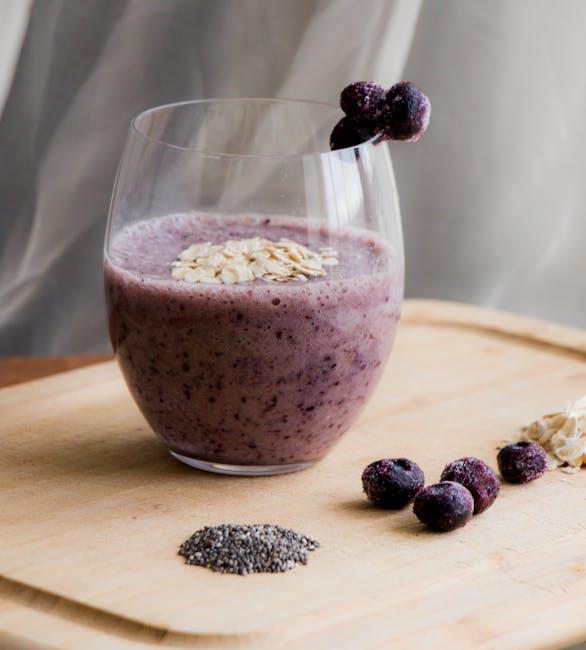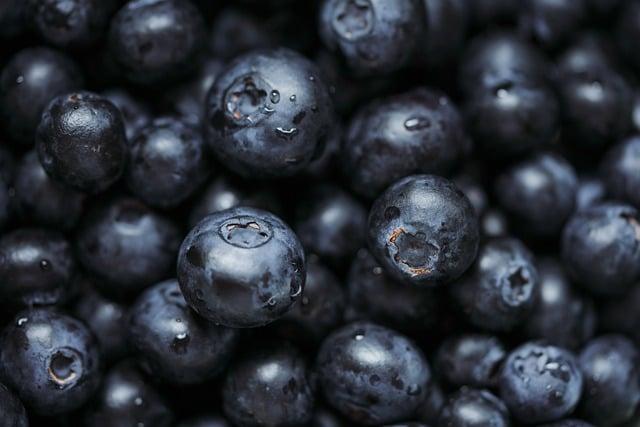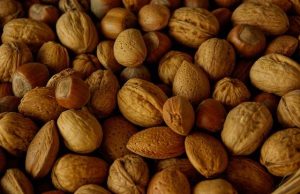In a world where kale smoothies swirl in the blenders of the health-conscious and chia seeds sprinkle like confetti over breakfast bowls, the term “superfood” has found its way into the lexicon of everyday wellness. Promising a bounty of health benefits wrapped in a single, vibrant package, these nutrient-dense foods are hailed as culinary saviors by some, and marketing gimmicks by others. But do superfoods actually make a difference, or are they simply the darlings of a savvy food industry capitalizing on our quest for vitality? As we peel back the layers of this phenomenon, we explore the science, the myths, and the reality behind the superfood sensation, seeking to understand whether these dietary darlings are truly a miracle on our plates or just another passing trend. Superfoods Really”>
Superfoods Really”>
Understanding the Hype: What Are Superfoods Really
In the bustling world of nutrition, the term “superfoods” has gained immense popularity, often creating a sense of wonder and urgency among health enthusiasts. These foods are typically rich in nutrients and believed to offer numerous health benefits. But what exactly are these nutrient powerhouses, and do they live up to their name? While there isn’t a strict scientific definition, superfoods are generally known for their high levels of antioxidants, vitamins, and minerals. They often include items like:
- Kale
- Quinoa
- Blueberries
- Chia seeds
- Acai berries
While the vibrant colors and exotic names might entice us to fill our shopping carts, it’s essential to approach superfoods with a balanced perspective. They are undoubtedly beneficial, contributing to a healthier diet when combined with other wholesome foods. However, the idea that they alone can transform health is an oversimplification. The key lies in a varied diet and understanding that no single food item holds the magic wand to wellness.

Nutrient Powerhouses or Marketing Myth: The Science Behind Superfoods
In recent years, the term “superfoods” has been thrown around with fervor, often used to describe foods like kale, quinoa, and acai berries. These foods are praised for their supposed superior nutritional benefits. But what does science actually say about them? At their core, superfoods are simply foods rich in nutrients, which are essential for maintaining good health. Vitamins, minerals, antioxidants, and fiber are some of the key components found in these foods, contributing to their health-promoting properties. However, the label “superfood” is not a scientific term but rather a marketing strategy designed to boost sales. Many nutritionists argue that the benefits of these foods are often overstated, and a balanced diet is more effective than focusing solely on these so-called superfoods.
Despite the hype, it’s crucial to approach the concept of superfoods with a critical eye. Here are some points to consider:
- Balanced Diet Over Singular Focus: Incorporating a wide variety of foods, rather than relying on a few “super” ones, ensures a more comprehensive nutrient intake.
- Nutrient Density Matters: While some foods are indeed nutrient-dense, it’s the overall dietary pattern that makes the difference in health outcomes.
- Beware of Exaggerated Claims: Be skeptical of products labeled as superfoods that promise miraculous health benefits. These claims are often unsupported by scientific evidence.
Ultimately, while superfoods can be a valuable addition to your diet, they are not a magic bullet for health. Prioritizing a diverse and balanced diet is key to achieving optimal nutrition.

Health Benefits Explored: Can Superfoods Transform Your Diet
In the ever-evolving landscape of nutrition, superfoods have emerged as the celebrities of the food world, promising a plethora of health benefits that range from boosting immunity to enhancing mental clarity. While the term ”superfood” is more of a marketing buzzword than a scientific classification, these nutrient-dense foods do pack a punch. Rich in vitamins, minerals, and antioxidants, superfoods like quinoa, kale, and blueberries have been celebrated for their potential to transform our diets. But can they truly make a difference?
- Antioxidant Power: Superfoods such as acai berries and dark chocolate are loaded with antioxidants, which help combat oxidative stress and may reduce the risk of chronic diseases.
- Heart Health: Foods like chia seeds and walnuts are rich in omega-3 fatty acids, known for supporting cardiovascular health by reducing inflammation and lowering cholesterol levels.
- Digestive Aid: Fermented superfoods like kimchi and kefir promote a healthy gut flora, aiding digestion and boosting overall gut health.
- Energy Boost: Quinoa and sweet potatoes provide complex carbohydrates that offer a sustained energy release, ideal for maintaining energy levels throughout the day.
While incorporating superfoods into your diet can certainly enhance nutritional intake, it’s essential to remember that no single food holds the key to health. A balanced diet, regular exercise, and a healthy lifestyle are the foundational pillars that truly support long-term well-being.

Making Informed Choices: How to Incorporate Superfoods into Your Lifestyle
Incorporating superfoods into your lifestyle is less about radical changes and more about making thoughtful choices that complement your existing habits. The key is to understand that superfoods are not magic bullets but rather potent allies in your quest for better health. By weaving these nutrient-dense foods into your daily routine, you can enhance your diet with minimal effort. Here are some practical tips to get started:
- Start Small: Introduce one superfood at a time to see how it fits into your meals and how your body responds.
- Mix and Match: Combine superfoods with familiar ingredients. For example, add chia seeds to your morning smoothie or sprinkle goji berries on your oatmeal.
- Be Mindful: Pay attention to portion sizes. Superfoods are potent, and a little goes a long way.
- Stay Informed: Research the specific benefits of each superfood. Understanding their unique properties can guide you in choosing the right ones for your needs.
By making these informed choices, you empower yourself to create a balanced and enriching diet, seamlessly incorporating the benefits of superfoods without overwhelming your lifestyle.





























